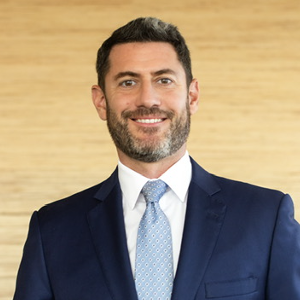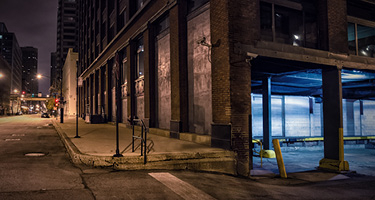“WRONGFUL DEATH” is the legal term for a situation in which someone loses his or her life due to another party’s negligence or misconduct. Wrongful death lawsuits seek to compensate the victim’s surviving loved ones for damages such as pain and suffering prior to death, pecuniary damages (including lost income, pension and a reduction in the value of the deceased’s estate), as well as household services, the loss of parental guidance, medical expenses and funeral costs.
Financial damages of course hardly fill the void of grief and sorrow after the death of a loved one. Financial compensation can alleviate unnecessary stressors and allow the family to grieve more comfortably. But not all families are afforded the same amount of “sympathy” in the eyes of the law. Wrongful death laws vary by state, and New York’s is as antiquated as they come.
A Brief History of Wrongful Death Legislation
By the beginning of the nineteenth century, the Industrial Revolution had spread across the east coast of the United States. At the center of it all was the then-capital of the young nation, New York City, which would boast more than 500,000 residents by 1850. It was connected to the rest of the country by a growing network of train systems that were rapidly expanding westward. With little existing legal protections and high demand for labor, railroad workers frequently lost their lives on the job.
The widows and children left behind often faced unimaginable financial hardship as they mourned. Women’s options for work were limited to “pink collar” positions such as schoolteachers and domestic servants. The rate of working women grew in the nineteenth century as demand for factory labor rose, but even so, only 10% of American women worked outside the home in 1840. The lack of employment opportunities for women meant that widows, particularly mothers, were left with few resources to support themselves and their children.
To alleviate this, in 1847 New York became the first state to pass a wrongful death statute. The law said that surviving family members could reclaim lost income following the wrongful death of a breadwinner. At the time, this was a dramatic step forward in tort law; before 1847, only injuries were litigable. New York was, at that time, considered a forward-thinking, innovative legal model for other states to follow. Some of them soon followed suit, providing opportunities for families across the country to seek financial compensation during the grieving process.
The Human Impact of New York’s Wrongful Death Law
All 50 states have passed laws that protect the family members of those who have wrongfully lost their life. Sadly, not all wrongful death statutes are created (or amended) equally; as with any state law, individual state-level legislative powers have written and amended wrongful death laws as they see fit. Unfortunately for New Yorkers, while many states have been flexible in their approach, New York’s law, even today, remains essentially the same one that was constructed back in the 1800s. Wrongful death lawsuits in the Empire State do not provide the same protections that most offer mourning loved ones.
While New York’s statute has undoubtedly brought significant relief to surviving families over the course of nearly two centuries, it has failed to adapt to people’s needs over time. More than 175 years after its passage, the state’s wrongful death law is essentially the same one enacted to protect the families of those nineteenth-century railroad workers. This failure to amend it has gradually turned one of New York’s most progressive laws into one of its most outdated when compared to the rest of the nation.
In New York, wrongful death lawsuits are limited to what is called a “pecuniary statute,” and these suits are generally measured legally by an accounting of the pecuniary loss the surviving family suffered because of the death. The state refuses to consider the mental anguish, grief and emotional suffering that surviving loved ones have endured when determining how much money they may receive. Not only does this devalue the importance of the relationships shared by the deceased and their survivors, but it also unfairly deprives the loved ones of children, seniors and disabled victims of the financial compensation that could assist them as they attempt to heal. It also creates a hierarchy of how lives are valued. The well-heeled banker’s life is more valuable to his loved ones than that of the stay-at-home mother. Why? Merely because the banker’s income is far greater. Similarly, children, older people or disabled victims are viewed as far less valuable than a wealthy victim. They don’t work or support their family, so they’re impotent in the eyes of the state. Many have rightly questioned the fairness of this.
Shockingly, New York is one of only three states that refuses to allow grieving families to claim compensation for loss of a relationship. To make matters worse, New York also fails to recognize any form of emotional grief on behalf of surviving family members in wrongful death cases.
This refusal to consider the complexities of the burden surviving families carry means that the life of a professional sports star is worth more in the eyes of the law than the life of a stay-at-home mother who raises three children while not earning money. The outdated law portrays the life of an employed adult as more valuable than the life of a 10-year-old in elementary school or a 74-year-old who just celebrated retirement.
Many have argued that families in New York deserve to have their suffering recognized by the law. The loss of a family member doesn’t just amount to a loss of income—it’s also a loss of moments, memories, support and love. Grief is a never-ending path. The void left behind when a familial role is left vacant is a constant, unfathomable source of pain. No amount of money can replicate the presence of a loved one, but financial compensation can alleviate some of the daily stressors that prevent families from being able to cope with their grief.
Bringing Justice to Grieving Families: Legislators’ Efforts to Improve New York’s Wrongful Death Law
Families, attorneys and lawmakers alike have spoken out against New York’s outdated and unjust lack of consideration for the survivors of wrongful death victims. Last year, the Grieving Families Act was brought to the New York State Assembly and New York State Senate and was passed with overwhelming support.
Under the Grieving Families Act, the surviving loved ones of those who have been wrongfully killed would be granted the opportunity to have their psychological suffering and loss of companionship considered in wrongful death lawsuits. The act would also grant a more holistic definition of family, honoring the roles of siblings, grandparents and domestic partners.
Despite mass support for the Grieving Families Act, Governor Kathy Hochul vetoed it on January 31, 2023. In a statement, she suggested that lawmakers had failed to fully consider the economic implications of the bill, and that she would be open to a different version of it. The next step toward justice for mourning families is uncertain. Despite this legislative setback, many hold out hope that the demands made by the Grieving Families Act will one day be awarded to the people of New York and are fighting to make that happen.
What Can Be Recovered in the Aftermath of a Wrongful Death in New York
Despite the archaic limitations of New York’s wrongful death statute, attorneys across the state continue to work exhaustively within the law’s restrictions. As lawyers, we have the privilege of working closely with victims to understand their stories and bring them closer to relief. Some may think we’ve been desensitized by many decades spent working in this field, but nothing could be further from the truth. It is always painful to sit across from a mother of four who has been widowed under terrible circumstances. As attorneys, it is our mission and honor to use our knowledge of the law and expertise in our field to bring justice to hurting families.
In New York, compensation may be awarded for any impact on the decedent’s estate; if an untimely death rendered an estate smaller than it might have been had the decedent lived a normal life, the difference between those numbers is recoverable. Children of deceased parents can also make claims for their loss of parental guidance. Once again, New York views the value of parental guidance primarily through the prism of how much money a person contributed to the overall fabric of their family (or surviving heirs). However, some guidance that is not directly financial (such as intellectual and moral training) can be cited.
Younger children are typically awarded more for a loss of parental guidance, since they’ll remain children longer, translating to a greater loss. An emotionally challenged child will often receive more because they benefit more from the guidance of a parent than another child might. Older children, estranged children and children raised within a marriage that is not solvent will generally see less compensation, as the deceased parent would arguably have had less contact with them.
Whenever applicable, attorneys should also seek damages for the deceased’s pain and suffering. This offers two avenues for recovery: fear of impending death experienced by the decedent, and any physical or mental anguish experienced between the accident and death.
In a wrongful death lawsuit, it is not uncommon for the defense to attempt to trivialize an important relationship. We try to bring life to it, vividly explaining what has been lost. One recent case involved an immigrant killed in a truck accident; he had been a father of four, supporting several children who still lived in his home country. To show the connection he had maintained with them, we stressed not only the money he sent home but also the frequency of his social contact. WhatsApp records showed him checking in every 24 hours, faithfully bidding his children good night.
Although we extend every effort to emphasize the great loss our clients have suffered, this goes only so far in court. Nothing in our power can solve the injustice we plainly see while explaining the limitations of New York law to grieving family members. An attorney inevitably feels hollow when they have to say “I understand your grief, but that is not part of your case,” or when they have to tell parents who are mourning the death of a child, “I appreciate that your world has just been destroyed, that you are irrevocably heartbroken, but your case is only worth X,” a shockingly small amount of damages. And the parents look back and say, “My child’s life is only worth this?” It’s heartbreaking, and it must change.
This lack of humanity must be resolved by the state of New York to bring justice to families that desperately need it. Victims and their families leave an indelible impression on any personal injury lawyer. With them in mind, we remain hopeful that New York will update its anachronistic law, extending much-needed relief to plaintiffs who have faced unfathomable tragedies. [END SLUG]
David L. Scher is a partner at Block O’Toole & Murphy and was elected president of the New York State Trial Lawyers Association (NYSTLA) with a term beginning in July 2023. His expertise surrounding New York labor law, particularly Sections 240(1) and 241(6), appears in the New York Law Journal; he gives annual lectures to hundreds of practicing attorneys in New York on how best to frame, plead and handle a Labor Law 240 case. He has obtained exceptional multimillion-dollar personal injury results while also managing appeals for the firm.





































